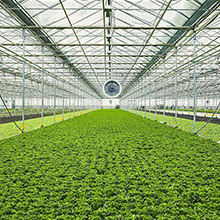Nouvelles
The Fonds de recherche du Québec award nearly $565,000 in research grants to seven Polytechnique Montréal professors
Seven Polytechnique Montréal researchers have received a total of $564,356 via various government programs to carry out research mandates.

Top row: Professors Françoise Bichai, Virginie Francoeur, Antoine Legrain, and Stephan Reuter. Bottom row: Professors Nicolas Saunier, Bruno Savard, and Raphaël Trouillon.
Québec's Chief Scientist Rémi Quirion, and the Scientific Directors of the Fonds de recherche du Québec - FRQ, namely: Janice Bailey of the Fonds de recherche du Québec - Nature et Technologies – FRQNT, Carole Jabet of the Fonds de recherche du Québec - Santé – FRQS, and Louise Poissant of the Fonds de recherche - Société et culture – FRQSC, recently announced $19.7 million in grants to Québec-based researchers at the unveiling of the regular funding competitions for the 2022-2023 fiscal year.
Researchers will have access to funds allocated by the FRQ, and, thanks to the FRQ-NSERC partnership, funds from the NOVA program, the main objective of which is to support research projects led by Québec's early career researchers in collaboration with researchers from other Canadian provinces and territories.
Québec’s Research Support for New Academics 2022-2023 - Natural Sciences, Math, and Engineering contributes to ensuring the success of the next generation of researchers and academics in the aforementioned fields by helping them early in their careers, to establish autonomy and competitiveness at national and international levels.
The Programme de recherche sur la sécurité routière’s goal is to develop knowledge about road safety issues in general, and more specifically, about the behaviour of those using road networks, as well as about the nature of accidents, and strategies to be implemented.
The Research Support for New Professors program permits the completion of an individual research project, and helps ensure new professors’ commitments in university research and educational communities by helping them early in their careers, to establish themselves independently and competitively at national and international levels, in addition to training the next generation of students.
"With these investments in research and research training, tomorrow's Québec is the winner. These awards will help prepare academia's next generation, and support basic research, the advancement of knowledge, and innovation in all its forms," said Rémi Quirion, Québec's chief scientist.
Below follows a description of the Polytechnique Montréal projects that have received a research grant:
Towards a New Urban Water Management Paradigm: Decision Support for Sustainable Hybrid Systems Design
Researcher: Françoise Bichai, Associate Professor - Department of Civil, Geological and Mining Engineering
Program: NOVA Program For Early Career Researchers
Fund: NSERC-FRQNT
Amount: $114,300
This interdisciplinary research project examines the technical, economic, environmental and social potential of new "hybrid" configurations of municipal wastewater systems, i.e. those which operate on a variety of scales. In collaboration with economists from the Université de Sherbrooke and the University of Waterloo, an analysis of existing urban water systems in Québec and Ontario will be conducted to identify urban configurations that affect efficiency and sustainability. A mixed methodology, involving an analysis of stakeholders' preferences for future scenarios, modeling of different wastewater systems, and a new multi-criteria spatial analysis framework, will be applied to a specific case study. The latter is defined as a project partner municipality - representative of many Québec cities which face development needs beyond the capacity of existing systems - in order to evaluate a variety of hybrid configurations and compare them to traditional water management options to guide decision making. Professor Bichai also received $135,000 from the Natural Sciences and Engineering Research Council of Canada – NSERC, for her research project through the NOVA program.
Dominique Claveau-Mallet, Assistant Professor - Department of Civil, Geological and Mining Engineering (Polytechnique); Jie He, Full Professor - Department of Economics (Université de Sherbrooke); and Roy Brouwer, Full Professor - Department of Economics (University of Waterloo), are co-investigators for this project.
Towards a greener construction industry: study of eco-responsible behaviour*
(Simplexe stochastique et en nombres en tiers pour les systèmes de transport à la demande)
Researcher: Virginie Francoeur, Assistant Professor - Department of Mathematics and Industrial Engineering
Program: Research Support for New Academics
Fund: FRQSC
Amount: $56,356
Still considered far too polluting and energy-consuming, the construction industry represents a genuine environmental challenge because of its greenhouse gas emissions and the millions of tons of waste caused by demolition, and the massive use of water on construction sites. To reduce these environmental impacts, one of the most promising avenues is research on environmentally responsible behaviour. This project aims to analyze the levers and obstacles to the adoption of these behaviours. It will pave the way for the integration of eco-responsible behaviours ranging, for example, from recycling on construction sites to the reduction of materials at the source in order to respond more effectively to the problems that can represent an ecological transition in the construction industry.
Simple stochastic and third-party number complex for on-demand transport systems*
(Simplexe stochastique et en nombres en tiers pour les systèmes de transport à la demande)
Researcher: Antoine Legrain, Assistant Professor - Department of Mathematics and Industrial Engineering
Program: Research Support for New Academics - Metropolitan Community
Fund: FRQNT
Amount: $50,800
On-demand transportation services have reduced reliance on personal vehicles and provided new mobility options for various population segments. Trip sharing has the potential to reduce congestion, decrease greenhouse gas emissions, and make mobility accessible to new population segments by lowering travel cost. This project aims to develop an instantaneous (has a solution at all times), data-driven algorithm to assist on-demand transportation systems by creating more efficient routes. Online operations management systems have become a must in the age of cloud computing and mobile applications, as these technologies enable real-time resolution of problems that were previously solved on a daily basis. The proposed approach will improve the efficiency of many other services such as food delivery, appointment scheduling, and inventory management – which represent additional, complex optimization problems that must also be solved in real time.
Cold Plasma as a Precision Tool in Plasma Medicine
Researcher: Stephan Reuter, Associate Professor - Department of Physical Engineering
Program: Research Support for New Academics - Metropolitan Community
Fund: FRQNT
Amount: $50,800
Cold physical plasma-based wound therapy, and the potential of plasma for cancer treatment, have increased global research in plasma medicine. Current application in plasma-based cancer therapy are still empirical, and without a means of control other than treatment time. In order for plasma to select between healthy cells versus cancer cells, novel approaches are urgently required, such as tailoring plasmas. Based on knowledge gained from plasma diagnostics and modelling, the aim of the COMPETE project, is to influence plasma chemistry using physical parameters. The COMPETE project team, and the Plasma Physics and Spectroscopy Research Group intends to develops a plasma source that will be able to instantaneously switch reactive species composition, and produce reactive species desired for a targeted plasma-based cancer treatment.
COVID-19, Behaviours, Road Safety: Assessment & Lessons from a Paradigm Shift*
(COVID-19, comportements et sécurité routière : bilan et leçons d'un bouleversement)
Researcher: Nicolas Saunier, Full Professor - Department of Civil Engineering, Geology and Mines
Program: Concerted Actions/Programme de recherche sur la sécurité routière/Research project
Fund: FRQSC
Amount: $190,500
The impacts of the COVID-19 pandemic have been significant in all spheres of Québec society, including mobility habits. Road traffic - and consequently road accidents - greatly decreased in 2020, as the population adopted new mobility habits that have persisted, including telecommuting. This project aims to assess the impact of COVID-19 on road safety in terms of the number and severity of accidents, but also on exposure and behaviour in terms of mobility, driving, and in particular, respect for the ‘rules of the road.’ Assessments will be conducted using large mobility and road safety data sets for the entire province, as well as a population survey to better understand attitudes and motivations behind road safety behaviours in the context of changes caused by the pandemic.
Owen Waygood, Associate Professor - Department of Civil, Geological and Mining Engineering (Polytechnique Montréal); Luis Miranda-Moreno and Lijun Sun, Assistant Professors - Department of Civil Engineering (McGill University); and Aurélie Labbe, Full Professor - Department of Decision Sciences (HEC Montréa); are co-investigators for this project.
Ammonia as zero carbon fuel: high fidelity simulations of turbulent flame-wall interaction
Researcher: Bruno Savard, Assistant Professor - Department of Mechanical Engineering
Program: Research Support for New Academics - Metropolitan Community
Fund: FRQNT
Amount: $50,800
Ammonia, a zero-carbon component with an existing international distribution network, has the potential to be used as a clean fuel for power generation, or in combustion engines. However, burning ammonia is not without its own set of challenges. For example, an ammonia flame produces considerably more nitrogen oxides (NOx) than a natural gas flame. Further, NOx production is extremely sensitive to heat loss in terms of a combustion chamber wall. This project aims to establish the fundamental mechanism of the production of harmful components of an ammonia flame interacting with a combustor wall. A high-fidelity simulation approach, based on a high performance computing server, will be used to solve all scales of interaction between complex gas flow and chemical reactions at the flame-wall interface. Results will be used to better identify the technological requirements for large-scale use of ammonia as a clean fuel.
Measuring breast cancer chemistry with a smart paper device
Researcher: Raphaël Trouillon, Assistant Professor - Department of Electrical Engineering
Program: Research Support for New Academics - Metropolitan Community
Fund: FRQNT
Amount: $50,800
Tumors interact with their environment through the secretion of growth factors. These molecules stimulate the formation of new blood vessels feeding the tumor, a phenomenon known as ‘angiogenesis.’ This leads to chemical variations in the tumor microenvironment that are often difficult to measure in situ. In this project, a paper model of tumor angiogenesis will be constructed to characterize cancer chemistry. This model’s chemistry will be measured electrochemically using electrodes printed on paper – information which will provide valuable insight into cellular communication during tumor angiogenesis. The main outcome will be the manufacture of paper systems for the measurement of chemical dynamics which are difficult to quantify with standard techniques. Looking beyond this specific project, this technology will offer the possibility of integrating primary human cells to build a biological avatar, an on-chip model of a specific tumor to test the effectiveness of a treatment.
Congratulations to all the named Polytechnique Montréal professors!
Learn more
Professor Françoise Bichai expertise
Professor Virginie Francoeur expertise
Professor Antoine Legrain expertise
Professor Stephan Reuter expertise
Professor Nicolas Saunier expertise
Professor Bruno Savard expertise
Professor Raphaël Trouillon expertise
Department of Civil Engineering, Geology and Mines website (In French)
Department of Mathematics and Industrial Engineering website (In French)
Department of Engineering Physics website
Department of mechanical engineering website
Department of Electrical Engineering website (In French)
Fonds de recherche du Québec website
*Unofficial translation - English title; French title official




